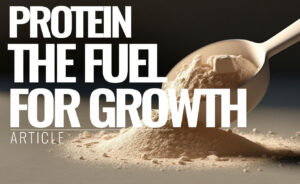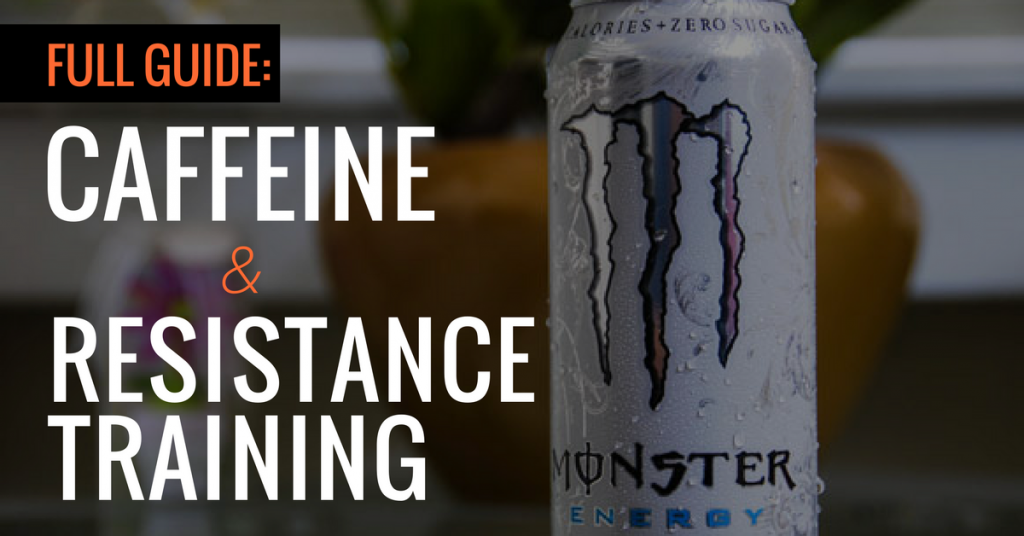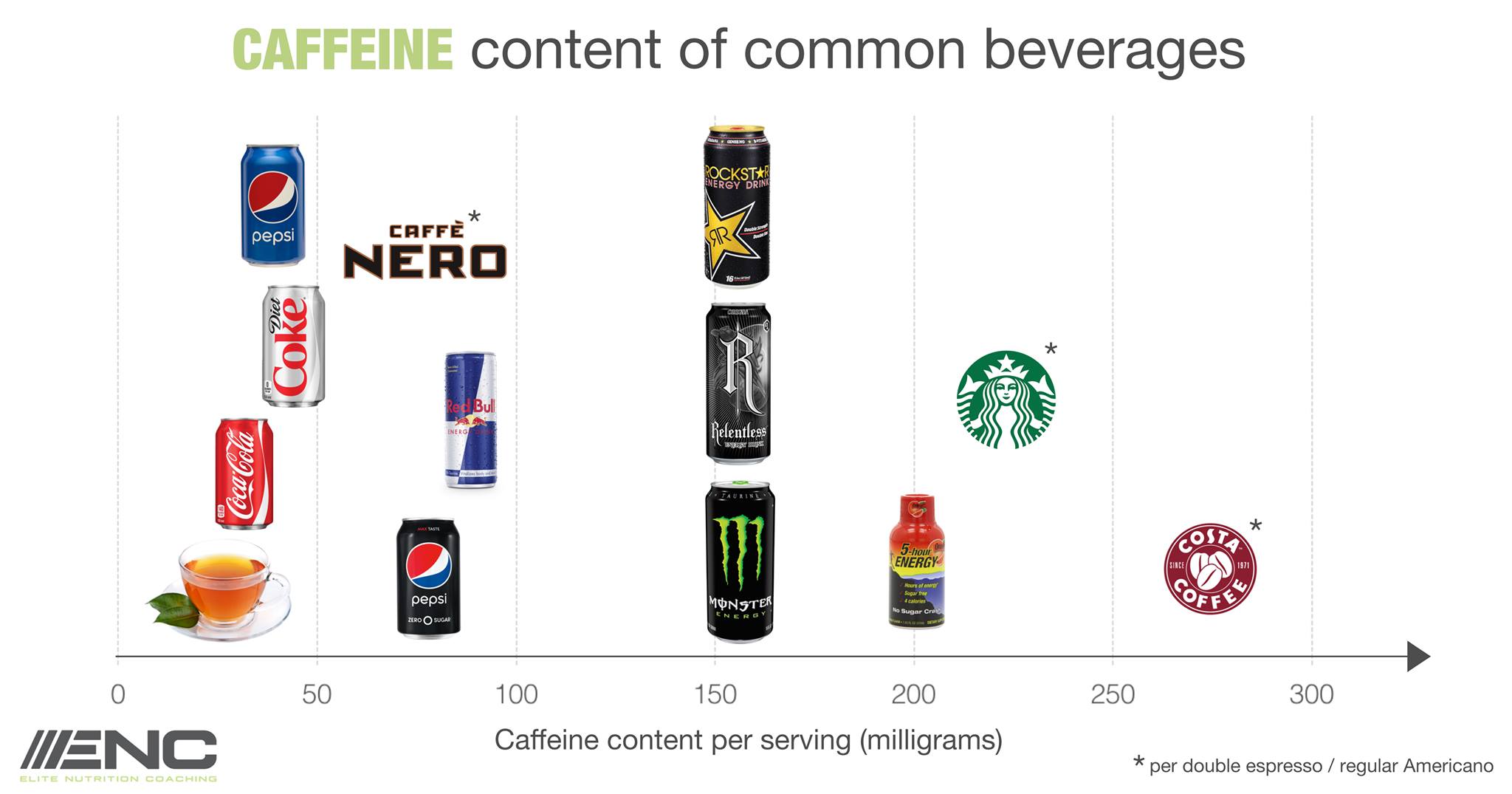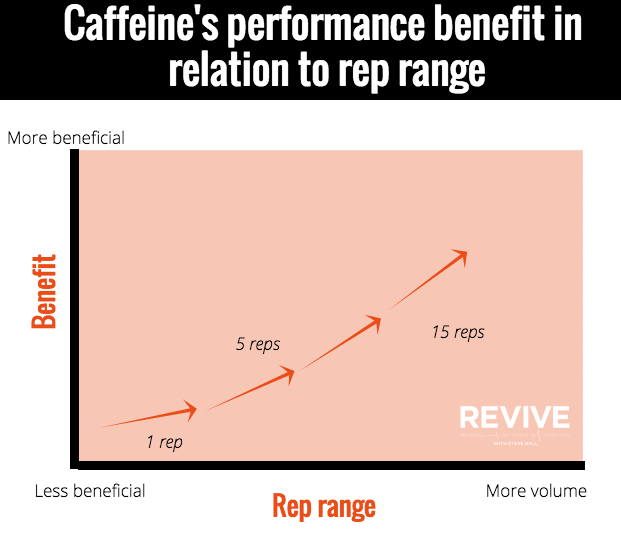
Revive Stronger
Full Guide: Caffeine & Resistance Training

Caffeine, caffeine, caffeine, who doesn’t love themselves some caffeine?
Speaking of caffeine, coffee is the most popular drink worldwide.
Where two billion cups are consumed every single day.
As you probably already know, coffee contains quite a bit of caffeine, with about 115 mg of caffeine in every cup. Caffeine could lead to improved training, better training mean better results, and we all want the best results possible right? Well I’m about to tell you, I being Ryan Solomon the administrator of the Revive Stronger facebook group, feel free to join us here.
Now, before you just jump onto the caffeine bandwagon and drink 4 cups of caffeine rich coffee before every workout, let’s dive into this a bit deeper and look at if it’s really beneficial, and how to use it in the most effective manner.
Table of Contents
Does Caffeine actually do all that much?
As with everything, it probably depends on the situation.
In regards to resistance training, we really don’t know for sure whether caffeine is truly beneficial or not. The evidence on the topic is somewhat contradictory, with some studies showing benefits, and others not so much. In my interpretation, the general trend shows caffeine to be more beneficial for people who are training for reps, rather than maximal strength, but an argument could be made for it to be beneficial for various types of training in general.
So practically, this means that if you’re going for a one rep max, it may not impact it a whole lot, but if you’re training in the 5-15 rep range, there may be some benefits. That being said, I see powerlifters routinely have caffeine on meet day, but I believe this is more due to the fact that a powerlifting meet is an all day thing, so it helps them not get tired throughout the day, not necessarily hit bigger PR’s.
Summing up the Science
Looking into individual studies are great for giving you an idea of what impact caffeine has, but lucky for us, the Journal of Applied Physiology, Nutrition and Metabolism did a review paper on the literature and found that taking a moderate dose of caffeine (~3mg/kg of body weight, or ~240 mg for a 175 pound person) can enhance performance across a wide range of sports and activities ranging from endurance exercise, team sports and high intensity workouts like interval cardio and strength training.
The key word here is “can” enhance performance.
That’s because people will respond in different ways to different caffeine intakes, and some people may really benefit from it, while others not so much. In my personal experience, caffeine does impact my workouts. I feel more focused and feel as though I’m ready to “attack” the weights. Now, the difference isn’t huge, and I’m not going to suddenly become Arnold Schwarzenegger because I had some caffeine pre-workout, but there is still a positive difference I notice, and that difference could potentially lead to better results over time.
It’s important to look into the science, if you’d like a free scientific guide to sports supplements, click here.
How much should you take?
I suggest that you start out having a lower dose of caffeine:
200-300 mg or 3 mg/Kg of body weight
30-60 minutes before your training session
This can be done by having about 12 oz of medium roast coffee (about 230 mg of caffeine), or by taking a caffeine pill. You might be wondering, why start at a lower dose? Because, you can always take more, but if you don’t need to, great!
How often should you take it?
I also suggest that you only do this for a couple of workouts/week:
- Roughly 50% of your workouts
This is because it only takes 1-4 days in a row of consuming 50-100 mg of caffeine to build a tolerance to it.
We want to avoid becoming tolerant to caffeine, because we never want to feel like we need it in order to have a great workout. We never want to feel like we need anything to have a great workout.

You know why?
Because life will happen and you’ll be put in situations where maybe you can’t have your pre workout, maybe you don’t have your squat shoes, maybe you forgot your belt at home, whatever it may be, you want to still have the mindset that you can still F*** the weights up and get S*** done.
Another reason we don’t want to become tolerant is that we’ll be able to see benefits from lower doses, and won’t have to keep having more and more to see benefits. This keeps us from losing the ergogenic (fancy word meaning the enhancement of physical performance) effects of caffeine.
What if you drink Caffeine daily?
Now I’m sure there’s people reading this who drink caffeine daily, which is indeed A-OKAY
…..but to see an impact in your training, you may need to have a higher dose to see benefits because your body is already accustomed to what you’re currently consuming. Or you’ll just have to reduce your consumption for a bit, to prime yourself for caffeine’s benefits… Like doing a strength phase to potentiate a hypertrophy phase…. Which to see more on phase potentiation, check out this article here.
Will Caffeine keep you up at night?
Something crucial to note is that it can take up to 14 hours for caffeine to be completely metabolised by your system.
Yes I said 14 damn hours.
That means if you drink caffeine at 8am in the morning, it could take until 10pm for it to be completely out of your system. Now, this depends on how much caffeine you have, and how your body personally reacts to caffeine, and does not just mean that if you have caffeine at 8am you won’t be able to sleep at all before 10pm.
To be on the safe side:
If you want to have a good night’s sleep, which you do if you’re serious about getting the best results, then pay attention to how late in the day you’re consuming caffeine. For me personally, I don’t have nY caffeine in the afternoon, I’ve spent too much time struggling to fall asleep to mess around with any caffeine after the noon hour.
Working out late & taking in caffeine
This may bring you to the question:
“what if I always workout after work, should I still try caffeine right before my workout?”
Short answer is….. no.
The cost of not being able to get to sleep is not worth the benefit of a potentially better performance during your workout. Don’t despair if you’re an after work warrior, if you have a dose of caffeine at lunchtime or before work, it will still be in your system when you go to workout, so you could still see some benefits from the caffeine.
When should you use caffeine then?
It’s a pretty good idea if you’re working out in the morning before work, or if you work out during the lunch hour. That being said, caffeine works by blocking the adenosines fatiguing effects on your body, but those effects are usually already blocked when you wake up after a good night’s sleep, so it probably won’t make a huge difference on a physiological level, but I still notice a difference.
This difference could be because caffeine has been shown to bring morning levels of neuromuscular readiness to levels similar to that of neuromuscular readiness in the afternoon. Whether it’s all mental or partially mechanistically is really up in the air, but the difference is still there and that warrants the use for me.
A Note from Steve
I think you’ll agree this has been an excellent piece by Ryan Solomon, using both his experience with the body of evidence.
Now I would just like to add a few tidbits, from my own experience with caffeine and coaching others:
1.] Caffeine & deloads:
DO NOT take additional caffeine when deloading, this is unnecessary and you’re missing out on an opportunity to reduce your habitual caffeine intake to become more sensitive to it in future. Furthermore, if you take a pre-workout and it gets you going before a deload, you may be tempted to do too much and this is going to blunt the important fatigue reduction during a deload.
2.] Caffeine & nutritional intake:
On a similar note, think about the context in which you might need caffeine. When you’re massing you’re taking in large amounts of food, do you really need caffeine? Whereas, when cutting, having the ability to take some caffeine to give you a boost is very handy indeed. Furthermore, although not in relation to weight training caffeine does have an appetite suppressing effect, therefore it makes even less sense to take whilst massing, and even more sense whilst cutting. In short; avoid caffeine during massing and use as necessary during cutting phases.
3.] Caffeine & position in mesocycle:
Well, in similar vain is also your relative intensity and training volumes. Ryan touched on the fact caffeine seems to benefit higher volume training vs. lower volume, and so it makes sense to align your intake with your training volume. Furthermore, if you’re intent on going nearer to failure, this is by default going to be more fatiguing. Therefore, it makes sense to place you caffeine intake alongside your hardest/highest volume training weeks.
4.] Caffeine & strength:
Now I know Ryan said the evidence doesn’t support the use of caffeine with strength training to a large degree, but from personal and client experience I can say this; having a decent hit of caffeine prior to a maximal attempt heightens focus and can allow for an improved performance. I say ‘can’ because some people find they get jittery, and that is a big no no for maximal lifts, however improved focus is very handy indeed.
Personally I take in caffeine year round, through coffee and diet drinks mainly.
When cutting both my intake of coffee and diet drinks goes up, and when times get tough I insert a sugar-free monster or may branch out and purchase a pre-workout. I’ve been there before taking a pre-workout before every workout, this isn’t a good position to be in because you end up relying on it, and as Ryan rightly pointed out, you do not want to need certain things to workout.
The Bottom Line
1.] Start at the lower end of the recommended dosages.
2.] Try to only have it a couple of times a week to avoid becoming tolerant.
3.] See how you respond.
4.] Caffeine will not make or break your workout.
What Next?
Learn about the best supplements for fat loss here.
Do you need any help with the above, feel free to drop me an email here.
Join my free facebook group or add me on snapchat (revivestronger) and ask your question there, I will respond asap. Or if you’re after a fresh training programme I have a free 4 week plan using DUP that you can download for free here.
One more thing…
Do you have a friend who would love the above? Share this article with them and let me know what they think.
[bctt tweet=”Full Guide: Caffeine & Resistance Training” username=”revivestronger”]
References:
Linked Studies for 1rm
- (Astorino 2008): https://www.ncbi.nlm.nih.gov/pubmed/17851681
- (Beck 2008): https://www.ncbi.nlm.nih.gov/pubmed/18714218
- (Williams 2008): https://www.ncbi.nlm.nih.gov/pubmed/18550961
- (Goldstein 2010): http://jissn.biomedcentral.com/articles/10.1186/1550-2783-7-5
Linked studies for repetition strength
- Astorino 2008: https://www.ncbi.nlm.nih.gov/pubmed/17851681
- Astorino 2011: https://www.ncbi.nlm.nih.gov/pubmed/21297558
- Davis 2009: https://www.ncbi.nlm.nih.gov/pubmed/19757860
- Duncan 2011: https://www.ncbi.nlm.nih.gov/pubmed/21157384/
- Duncan 2013: https://www.ncbi.nlm.nih.gov/pubmed/23834545/
- Fimland 2011: https://www.researchgate.net/publication/234155419_No_Effects_of_Caffeine_on_Muscle_Hypertrophy-Style_Resistance_Exercise
- Goldstein 2010: http://coffeeandhealth.org/abstract/goldstein-e-r-et-al-2010-caffeine-enhances-upper-body-strength-in-resistance-trained-athletes-journal-of-the-international-society-of-sports-nutrition-7-5/
- Green 2007: https://www.ncbi.nlm.nih.gov/pubmed/19168925
- Hudson 2008: https://www.ncbi.nlm.nih.gov/pubmed/18824931
- Jacobs 2003: http://www.humankinetics.com/acucustom/sitename/Documents/DocumentItem/16025.pdf
- Williams 2008: https://www.ncbi.nlm.nih.gov/pubmed/18550961
Review paper in the Journal of Applied Physiology, Nutrition and Metabolism:
- https://www.ncbi.nlm.nih.gov/pubmed/19088794
- Invest 1981: https://www.ncbi.nlm.nih.gov/pmc/articles/PMC370671/
- Web MD: http://www.webmd.com/sleep-disorders/features/sleep-hygiene#1
- https://www.strengthandconditioningresearch.com/2013/08/19/caffeine/
- Neuromuscular Readiness Article: http://bayesianbodybuilding.com/best-time-to-work-out/
We are a personal coaching service that helps you achieve your goals. We want you to become the best version of yourself.







